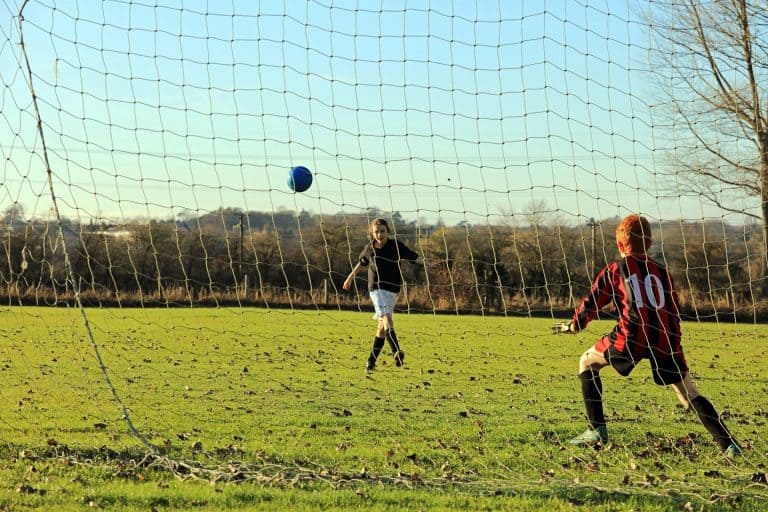Parents under pressure – the risk of early settlement of Child Brain Injury claims
We recently took over a case from another firm of solicitors to represent a 3-year-old girl, whom I will refer to as ‘Katie’; she had suffered a brain injury in a serious car accident. Katie’s story highlights the importance of choosing a specialist firm of solicitors when a child has suffered a brain injury in an accident or because of clinical negligence.
‘Katie’s’ story
Katie was taken to hospital in an ambulance, following the road traffic accident and underwent a full body scan. Katie’s family were told that she had suffered multiple injuries, the most serious of which was a bleed on the brain. The extent of the brain injury was unknown but the hospital felt that Katie was well enough to return home after a couple of days of being in hospital.
When Katie’s parents brought her home, it quickly became clear that something wasn’t right. Katie, who had always been chatty, playful and happy, was suddenly quiet and withdrawn. Her speech was affected to the extent that it was difficult for her family and friends to understand her. This was not an issue before the accident. She suffered from terrible nightmares and woke up crying in the night. Katie’s parents were so worried about her condition that they went back to the hospital and asked that she be referred to a specialist.
At the same time, Katie’s mum reported the accident to her insurance company. Her insurance company referred her to the solicitors on their panel. The person dealing with the claim was a paralegal, not a qualified solicitor, who sent them a letter and some documents to sign. Katie’s parents were not offered a face-to-face appointment with the person dealing with Katie’s claim and there was no suggestion that they should meet at anytime.
Unfortunately, the person dealing with Katie’s claim was not a specialist in compensation claims involving children with brain injuries. They did not apply for copies of Katie’s medical records and was therefore unaware that Katie had suffered a brain injury in the accident. Katie’s parents repeatedly told them that she had suffered a brain injury but they were ignored. The person dealing with the claim treated it as a straightforward, low value claim.
When a child has suffered a brain injury in an accident or because of clinical negligence, it is necessary to arrange for them to be assessed by a number of specialist medical experts, who have seen the medical records. Katie was sent to see a GP who did not have access to Katie’s medical records and spent only five minutes assessing her before preparing his report in relation to her injuries. The GP expert diagnosed Katie with minor injuries. There was no mention of Katie’s brain injury in his report.
Once the GP report was received, the person dealing the claim told Katie’s parents that they had everything they needed to settle Katie’s claim, as she had suffered nothing more than minor injuries. Katie’s parents raised their concerns about the fact that Katie had not been thoroughly assessed by the GP expert and about the lack of information in the report regarding Katie’s brain injury. Unfortunately, their concerns were dismissed on the basis that there was no evidence that Katie had suffered a brain injury. They were not being listened to.
Katie’s parents decided to find a solicitor specialising in Child Brain Injury compensation claims for advice. They found our details online and we arranged to meet them at their home to discuss their concerns about Katie’s injuries and her claim for compensation. We visit all of our clients at home or a place convenient for them.
We immediately requested and reviewed Katie’s medical records. The records clearly showed that Katie had suffered a brain injury in the accident. We have arranged for Katie to be assessed by a paediatric neurologist as a starting point. It is likely that Katie will need to be reviewed by a number of experts who specialise in children who have suffered brain injuries.
If Katie’s parents had followed the advice they had been given to settle the claim, based on the GP report, Katie’s brain injury would have gone unrecognised. As a result, her long term needs would not have been investigated and therefore would not have been met. Another consequence would have been that Katie would have been significantly undercompensated for her injuries. This is extremely worrying because Katie would not have received sufficient compensation to meet her short and long-term needs. As the settlement award would have been final, Katie would not have been able to ask for more compensation from the person responsible for her accident later. Katie would have been faced with the situation of having to pursue her former solicitors for potential negligence. In addition, Katie would not have received the rehabilitation, care and support she will need to flourish post injury.
We will investigate Katie’s injuries and losses thoroughly, to ensure that she receives the compensation she is entitled to and requires to ensure her needs are met. We will consider, among other things, whether Katie requires additional educational support, whether her brain injury will affect her employment prospects and earnings capacity. We will also explore the types of rehabilitation, equipment, care and support she requires now, and in the future.
Your solicitor, your choice
If your child is injured in a road traffic accident and you would like to make a claim for compensation on their behalf, you should check whether you have legal expenses insurance which will cover your legal costs in bringing the claim. This insurance is often included as part of a travel, motor or household insurance policies.
As in Katie’s case, insurance companies often put pressure on customers to instruct their panel solicitors, despite the fact that they may not be the best people for the job. You should not feel pressured to accept the panel firm offered to you if they do not have the knowledge or expertise to represent the complex interests of a child who has suffered a brain injury. Your right to choose a solicitor for your child is protected under the Insurance Companies (Legal Expenses Insurance) Regulations 1990. Under the regulations, you have the right to instruct a solicitor who you feel will act in the best interests of your child.
If you decide against a panel firm there are other funding options available and Bolt Burdon Kemp will find a way to fund the claim for you. This could include a “No win, no fee” agreement. Further information about possible funding arrangements can be found here.
Top tips when choosing a solicitor for a child who has suffered brain injuries
You may be happy with the firm that your insurance company has chosen for your child. However, before appointing any solicitor to investigate your child’s claim, you may want to ask the following questions:
- Will the claim be dealt with by a solicitor and, if so, how long have they been qualified?
- How long have they represented children with brain injuries and how many cases are they handling at the moment?
- Will they keep in regular contact with you and how will this be done?
- Will they come to see you at home at a time that suits you?
- Do they have experience of working with other professionals in the field of Child Brain Injury (e.g. specialist medical experts, deputies)?
- Are they a member of the Association of Personal Injury Lawyers (APIL)
- Are they recognised for their work acting for children with brain injuries by external organisations e.g. the Child Brain Injury Trust or Headway?
- Are they on the Law Society’s Personal Injury Panel or Clinical Negligence Panel?
Always remember that it is your choice as to who you want to represent your child and you should feel confident that the solicitor has the necessary skills, expertise and experience to fully investigate your child’s claim and obtain the compensation that your child deserves. Compensation cases involving children with brain injuries take many years to settle because it is often necessary to wait until her child is at least 18 years old before the medical experts are able to provide a final prognosis in relation to the child’s injury. As a parent, you need to feel confident that you can work with the solicitor in the long term.










